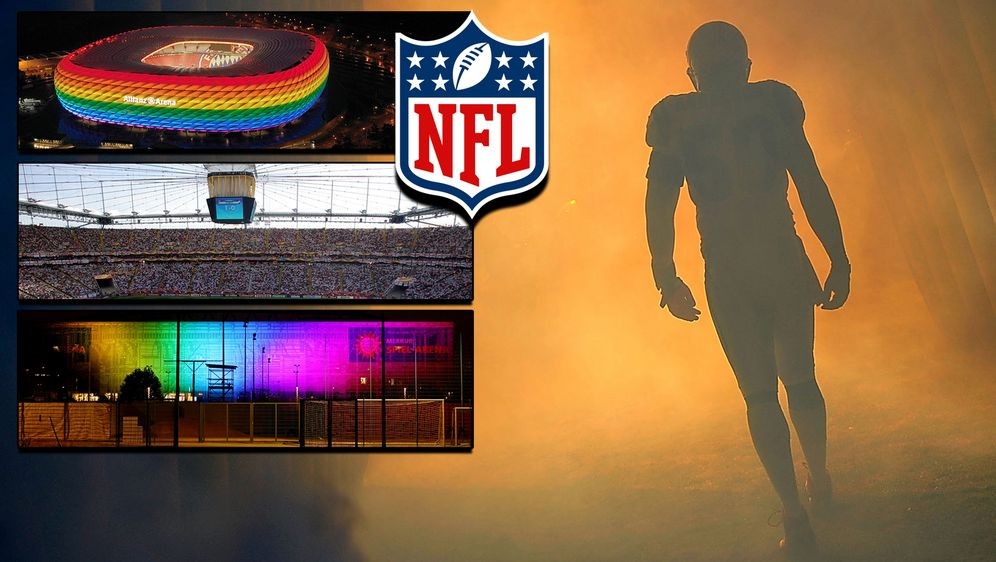Miami Dolphins quarterback Tua Tagovailoa suffers a serious head injury for the third time this season against the Green Bay Packers. The fact that the player with the history is even allowed to play this season once again highlights the failure of NFL officials in dealing with concussions. A commentary by Daniel Kugler.
Quarterback Tua Tagovailoa suffered a concussion in the Miami Dolphins game against the Green Bay Packers and ended up on the NFL’s Concussion Protocol.
This is actually just a formality in dealing with head injuries in the biggest football league in the world, to take the injured person out of the game, evaluate the extent of the injury and thus not endanger the person any further.
So much so good, but the Tagovailoa case has long since become a very special one in terms of dealing with concussions. For this was the 24-year-old’s third alleged serious head injury of the current season, which is less than four months underway.
At first glance, it is actually incomprehensible that the quarterback should still be on the pitch at all this season after his previous history. At second glance, the exclusion should have happened much earlier.
Tagovailoa may continue to play despite three head injuries
On Game 4, Tagovailoa was hospitalized after hitting his head on the turf in a game against the Cincinnati Bengals.
He ended up in Concussion Protocol, missed the team’s next two games and didn’t return until Game Day 7.
Just four days before the game against the Bengals, Tagovailoa had already taken a hard hit in the win over Buffalo Bills, appeared to show symptoms of a concussion, but was examined and remained in the game.
Later, the NFL changed its concussion management policy and henceforth mandated that any player showing possible concussion symptoms – including a lack of balance or stability – sit out the rest of the game.
That this measure is far from enough is evidenced by the re-injury to the Dolphins’ quarterback.
Tagovailoa facing return despite another head injury?
The league is simply sticking to its own guidelines, the player could return as still in the Regular Season – exaggeratedly said, as soon as the skull is no longer buzzing.
The wave of indignation over such grossly negligent behaviour on the part of those responsible for the NFL can no longer be heard only on fan or expert sides.
In the meantime, more and more of his teammates are taking a stand and urging the young quarterback to finally look after himself and think about his future, if none of the league’s proteges will do it, as one would expect.
Tagovailoa’s concussions: NFL tramples on its own protections
The Tagovailoa case is yet another shocking illustration of this: In times when commerce is above everything, not only in the USA, the career or, in the long run, the life of one of the players on the field plays only a subordinate role.
More so. The fact that the NFL’s and the Dolphins’ medical specialists did not pull the ripcord in the quarterback’s case after the concussion on the seventh day of the game at the latest and put the player out of action for the longer term with a view to his career as well as his life off the football field lacks any reasonable basis for argumentation.
After all, the evidence of CTE due to blows to the head is scientifically proven.
The NFL’s – and the club’s – inappropriate handling of the difficult issue and the handling of the individual case in question is – as sad as it sounds – no longer surprising in any way.
At the end of the day, the NFL is playing with the health and life of one of its players and, from a purely sporting point of view, with the future of a star player at his position who, in the best case, will be extended for years to come.
Three severe head injuries within a few months should be argument enough without much prior medical knowledge to keep Tagovailoa out of action for at least the rest of the current season.
The discussion about the long-term consequences of the severe blows to the player’s head in recent months should be left aside at this point.
After all, when the egg flies, the focus is on the sport. But even then, those responsible should always see the well-being of the athletes in the foreground and not just the ratings with a view to the current or upcoming marketing rights periods.
The health of the player does not have top priority
The extent to which, according to common sense, a balancing of interests can take place here at all or a higher-level intervention by the NFL’s higher-ups can be absent if the league’s doctors, who are specifically responsible for this, do not see the athlete’s health above all else, purely in terms of perspective, remains a mystery.
And no matter how high the ratings may be with Tua under centre compared to without him as the Dolphins’ quarterback, in the final analysis the much-described common sense should prevail.
What the NFL then decides in the end, or how it sets its priorities, is another matter – but it speaks volumes.
But the NFL still has the chance to correct this. It just has to act.






Comments
No Comments